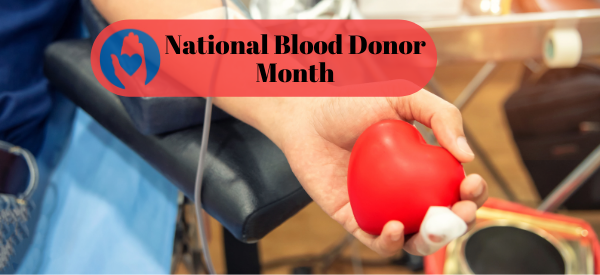January is National Blood Donor Month, a time to celebrate the lifesaving impact of blood and platelet donors. For nearly 50 years, this annual event has raised awareness about the importance of donating blood, especially during one of the most critical times of the year for blood supplies. Freedom Home Care proudly supports this lifesaving initiative by encouraging individuals to donate blood and make a difference in their communities.
The holiday season and winter illnesses often lead to a significant drop in donations, making January a crucial period for replenishing blood supplies. During this month, not only are voluntary blood donors honored, but individuals are also encouraged to donate and make a difference.
The Magnitude of Need and the Impact of Donations
Did you know that every two seconds, someone in the United States needs blood? National Blood Donor Month serves as a vital reminder of the constant need for a stable blood supply. Disasters and pandemics only amplify this demand.
Patients requiring blood donations include:
- COVID-19 patients in need of convalescent plasma.
- Cancer patients undergoing treatments.
- Accident victims rushed to emergency care.
- New mothers facing complications during childbirth.
The American Red Cross plays a pivotal role in managing blood donations, ensuring that lifesaving blood is distributed to the areas where it is most needed.
A Story of Impact: Robert Harris
One inspiring example is Robert Harris, a lifelong blood donor for over 50 years. His journey exemplifies how a single individual can make a difference. Harris’s contributions not only saved lives but also inspired others to donate. He fondly recalls meeting a 12-year-old girl who depended on transfusions and her grateful, yet fearful father. Stories like these highlight the human connection behind every donation.
How to Get Involved
Want to make a difference? Here’s how you can help:
1. Donate Blood or Plasma
- Recovering from COVID-19? Consider donating convalescent plasma, as it contains antibodies that could help patients fighting the virus.
- Find a blood donation site:
- Call the Red Cross at 1-800-733-2767.
- Visit the Association for the Advancement of Blood & Biotherapies (AABB).
- Search for local blood drives at workplaces, schools, churches, or through mobile Bloodmobiles.
2. Volunteer or Recruit Donors
- Volunteer to assist at blood drives or help organize mobile donation events.
- Spread the word to recruit new blood donors within your community.
3. Make a Monetary Donation
Financial contributions help blood banks maintain safe and sufficient supplies for those in need.
Why Your Donation Matters
At Freedom Home Care, we believe in the power of community and the importance of giving back. National Blood Donor Month is a perfect opportunity to make a tangible impact by donating blood, recruiting others, or volunteering. This January, join us in supporting this lifesaving cause. Together, we can ensure that every patient has access to the blood they need. Every drop counts!




